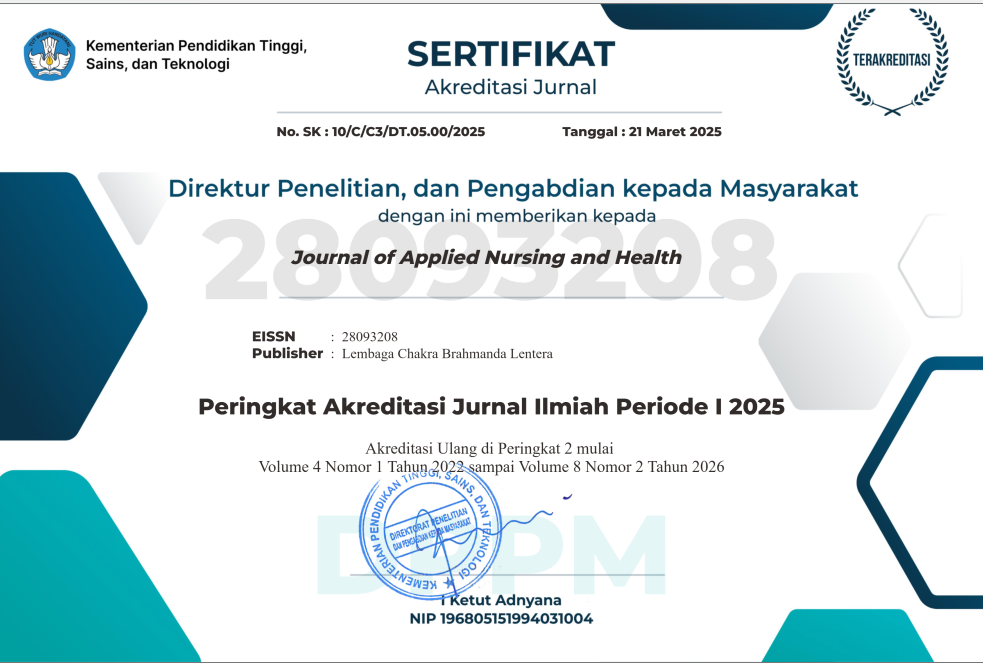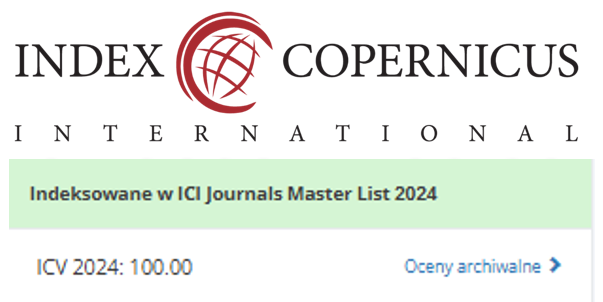Islamic Spiritual Care in Supporting Emotional Stability in High Care Unit Patients: A Systematic Review
DOI:
https://doi.org/10.55018/janh.v6i2.243Keywords:
Keywords: High Care Unit, Islamic Spiritual Care, Emotional Stability (Stress, Depression, and Anxiety).Abstract
Background: Patients in the High Care Unit (HCU) often experience increased levels of stress, depression, and anxiety, especially those who require long-term care between 3 and 15 days. The psychological pressure that patients face in HCU can affect the quality of recovery and elicit a variety of emotional responses that require attention in the treatment process. The purpose this study aims to analyze the impact of Islamic Spiritual Care (ISC), specifically through the recitation of Murottal Al-Qur'an Surat Ar-Rahman, in supporting emotional stability (stress, depression, and anxiety) in patients in the High Care Unit (HCU).
Methods: This research method uses systematic review using the PRISMA technique. Data was obtained from journals contained in PubMed, Science Direct, and Google Scholar from 2020-2024, based on the identification results based on inclusion criteria and feasibility reviews, and fifteen articles were obtained for review.
Results: The results of the implementation of Islamic Spiritual Care (ISC) through Murottal Al-Qur'an therapy, especially Surat Ar-Rahman, are effective in supporting the emotional stability of patients in the High Care Unit (HCU).
Conclusion: Murottal Al-Qur'an therapy, particularly Surat Ar-Rahman, as a component of Islamic Spiritual Care (ISC), can be utilized as a practical non-pharmacological approach to reduce anxiety, stress, and depression in patients in the High Care Unit (HCU).
Downloads
References
Arliana Arlin, Faisal Sommeng, Sigit Dwi Pramono, Purnamasari, R., & Irsandy Syahrudin, F. (2024). The Effect of Murottal Al-Quran on the Level of Anxiety in Breast Cancer Patients Undergoing Chemotherapy at Ibnu Sina Hospital Makassar. Media Publikasi Promosi Kesehatan Indonesia (MPPKI), 7(10), 2527–2532. https://doi.org/10.56338/mppki.v7i10.6148
Bialek, K., & Sadowski, M. (2021). Stress, anxiety, depression and basic hope in family members of patients hospitalized in intensive care units-preliminary report. Anaesthesiology Intensive Therapy, 53(2), 134–140. https://doi.org/10.5114/ait.2021.105728
Gerges, S., Hallit, R., & Hallit, S. (2023). Stressors in hospitalized patients and their associations with mental health outcomes: testing perceived social support and spiritual well-being as moderators. BMC Psychiatry, 23(1), 323. https://doi.org/10.1186/s12888-023-04833-6
Herlina, H., Hafifah, I., & Diani, N. (2020). Factors Associated with Patient’s Family Anxiety in the Intensive Care Unit (ICU). Jurnal Keperawatan, 11(1), 28–37. https://doi.org/10.22219/jk.v11i1.10954
Irmawati, Hadju, V., Syamsuddin, S., & Arundhana, A. I. (2020). The effect of listening to the recitation of the Qur’an (Murottal Ar-Rahman surah) on the level of anxiety of pregnant women in Siti Fatimah maternal and child hospital. Enfermería Clínica, 30, 238–242. https://doi.org/10.1016/j.enfcli.2019.07.097
Naef, R., von Felten, S., & Ernst, J. (2021). Factors influencing post-ICU psychological distress in family members of critically ill patients: a linear mixed-effects model. BioPsychoSocial Medicine, 15(1), 4. https://doi.org/10.1186/s13030-021-00206-1
Niningasih, R., & Wulandari, D. (2020). The Effect of Music Therapy and Murottal Al-Quran Therapy on Increasing Muscle Strength and Decreasing Anxiety in Stroke Patients Undergoing Passive Range of Motion (ROM) Exercises. Health Notions, 6(1). https://doi.org/10.33846/hn60105
Poloni, S., Hoss, G. W., Sperb-Ludwig, F., Borsatto, T., Doriqui, M. J. R., Leão, E. K. E. A., Boa-Sorte, N., Lourenço, C. M., Kim, C. A., de Souza, C. F. M., Rocha, H., Ribeiro, M., Steiner, C. E., Moreno, C. A., Bernardi, P., Valadares, E., Artigalas, O., Carvalho, G., Wanderley, H. Y. C., … Schwartz, I. V. D. (2018). Diagnosis and Management of Classical Homocystinuria in Brazil. Journal of Inborn Errors of Metabolism and Screening, 6, 232640981878890. https://doi.org/10.1177/2326409818788900
Rachmah, S., Mawaddah, N., & Jayanti, T. D. (2024). Murattal Therapy Reduces the Anxiety of Patients Treated in the Intensive Care Unit of a Hospital. Jurnal Kegawatdaruratan Medis Indonesia, 3(2), 135–145. https://doi.org/10.58545/jkmi.v3i2.384
Rosyidul ’Ibad, M., & Napik, A. M. (2021). Effect of Al-Qur’an Therapy on Anxiety Cancer Patients in Aisyiah Islamic Hospital Malang, Indonesia. Jurnal Keperawatan, 12(2), 156–162. https://doi.org/10.22219/jk.v12i2.13774
Safariyah, E., Indra, D. T., & Kusdayani, M. (2020). Correlation Between Nurse Therapeutic Communication and Anxiety Levels of Patients’ Families in the X Regional General Hospital ICU. Advances in Health Sciences Research, 27.
Saleem, S., & Saleem, T. (2023). Efficacy of music and quranic verses in reducing cortisol level: A stress biomarker in medical undergraduates. Current Psychology.
Salsabila, G. D., Novitasari, D. T., & Iftitanina, I. (2023). The Effectiveness of Al-Quran Murottal Therapy on the Level of Anxiety in Students. Journal of Psychology Today, 1(1), 9–15.
Suwardianto, H., & Kurniajati, S. (2022). Anxiety, Age, and Gender in Agitation Patients Installed Conventional Restraint in Inpatient Room. Journal of Applied Nursing and Health, 4(2), 349–355. https://doi.org/10.55018/janh.v4i2.108
Wahid, A. W., & Nashori, F. (2021). The Effectiveness of Al-Quran Surah Ar-Rahman Murottal Listening Therapy for Improving Positive Emotions on Informal Caregivers of Schizophrenia. Advances in Social Science, Education, and Humanities Research.
Downloads
Published
How to Cite
Issue
Section
License

This work is licensed under a Creative Commons Attribution-ShareAlike 4.0 International License.


















